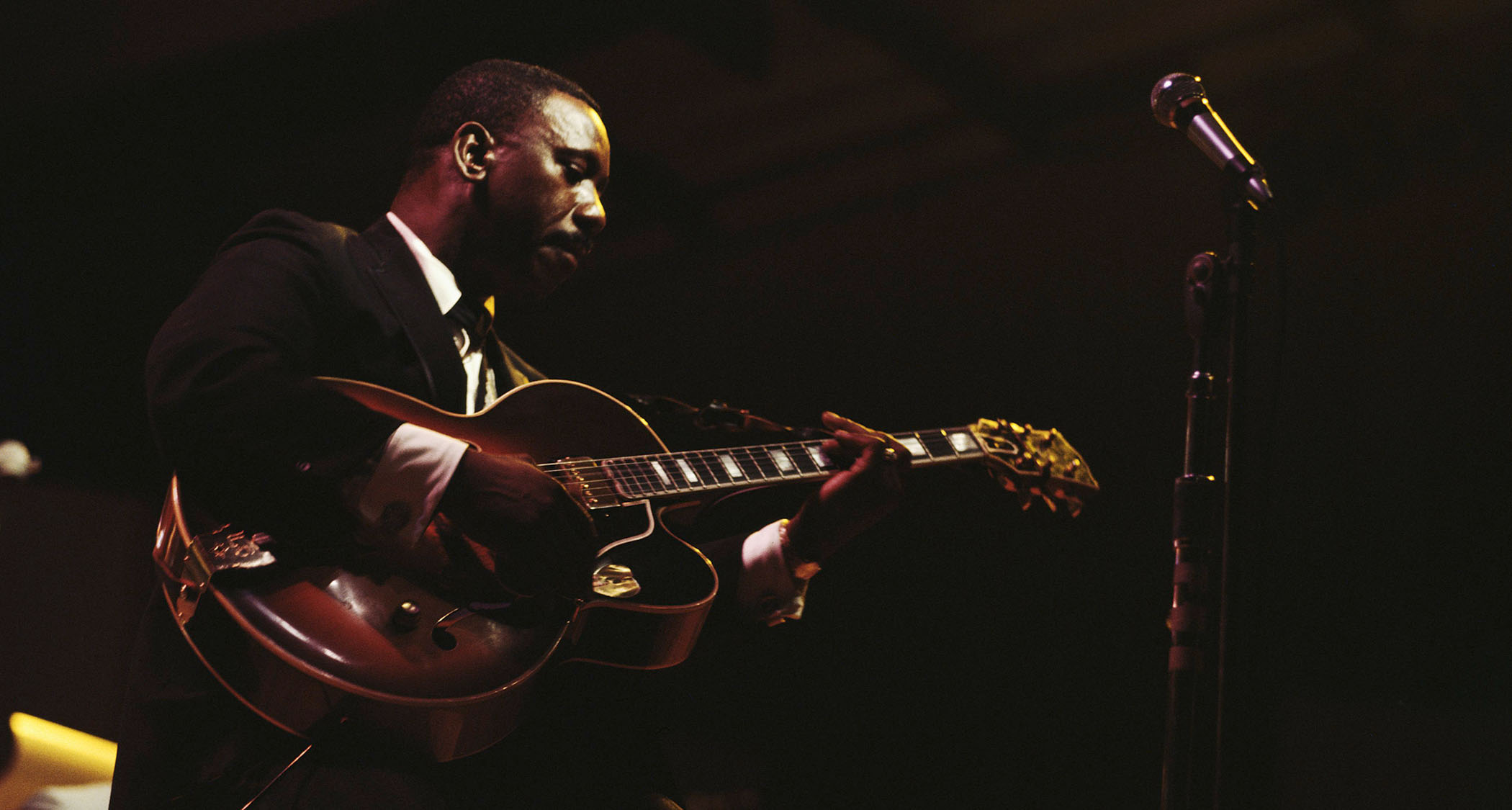How to Learn and Retain Music Faster and Have a Deeper Understanding of What You Know
Learn how to learn/retain a little faster and, most importantly, really understand what you’re playing.

When learning new scales, chords, concepts, etc., the goal is always to learn it quickly and turn it into music.
Sometimes you find yourself going over something again and again as if your brain won’t allow you to take in anymore information for the day—and then you get frustrated.
Around this time, you start screaming to your ceiling/roommate, “Why can’t I just be a guitar god prodigy?”
Well I can’t make you one, but I can give you tips on how to learn/retain a little faster and really understand what you’re playing. The first tip is on how to better understand what you’re playing, and that is transposing. When learning a new song, especially something along the lines of classic rock, or at least riff-oriented, guitarists have a tendency to rely on shapes or fret numbers. For example, learning a song that goes D-G may result in thinking “triangle shape followed by G shape."
Or learning a song like “Cocaine” by Eric Clapton may result in thinking in fret numbers for power chords, (sing main riff) “7-7-5-7-5." This is a good method of learning if you need to learn something RIGHT NOW, as it’s the simplest approach. But what happens when the singer has a cough and needs to sing “Shook Me All Night Long” in E instead of G? Awkward silence.
You can’t use a capo in every situation. So after you learn any song, whether it be classic rock or a jazz standard or a pop song or even “Cowboys from Hell” (You should be able to play that in drop D), try to play it in at least one or two different keys. It’ll force you to think of the notes/chords in terms of their musical relation to each other, instead of their physical relation. Then you’ll be able to play the bottom line in the “Shook Me All Night Long” chorus riff in any key and be every singer’s dream.
The second tip mostly applies to using new scales/soloing. The tip is to learn something to the best of your ability, and then immediately perform it. This performance can even be to a video recorder or family member, because the same instincts arise. As soon as the adrenaline kicks in mid-solo and you realize, “Oh crap, I didn’t know this as well as I thought,” you also realize, “But I do know enough to make it work."
Although it may not be an inspiring performance, you’ll come away with a few new tricks on how to get the most music from the least amount of information. The last and easiest tip, one you may have heard from a pop psychology article, is sleep. If you’re learning a lot of new material in a week (for example, trying to learn Bb, G and Db harmonic minor all over the fretboard and be able to transition seamlessly between them while soloing), it can become overwhelming fast.
Learning as much as you can until you hit that mental wall where you can’t learn anymore is a perfect time to put the guitar down and take a nap. Not a three-hour nap, but 30 minutes or so. Letting your brain relax gives it a chance to store what you just learned. When you wake up, you’ll have the information committed to memory and a bit more energy to keep shedding.
Just make sure you don’t nap too long or you’ll have a hard time going to sleep that night! Use these three tips as you will, they’ve helped me immensely over the years. My favorite is No. 2. It doesn’t work 100 percent of the time, but when it does you get some really cool ideas.
Elliott Klein is a New York City-based guitar player/singer/songwriter who plays in Bright and Loud. He's also a session guitarist/hired gun/teacher.
Get The Pick Newsletter
All the latest guitar news, interviews, lessons, reviews, deals and more, direct to your inbox!









